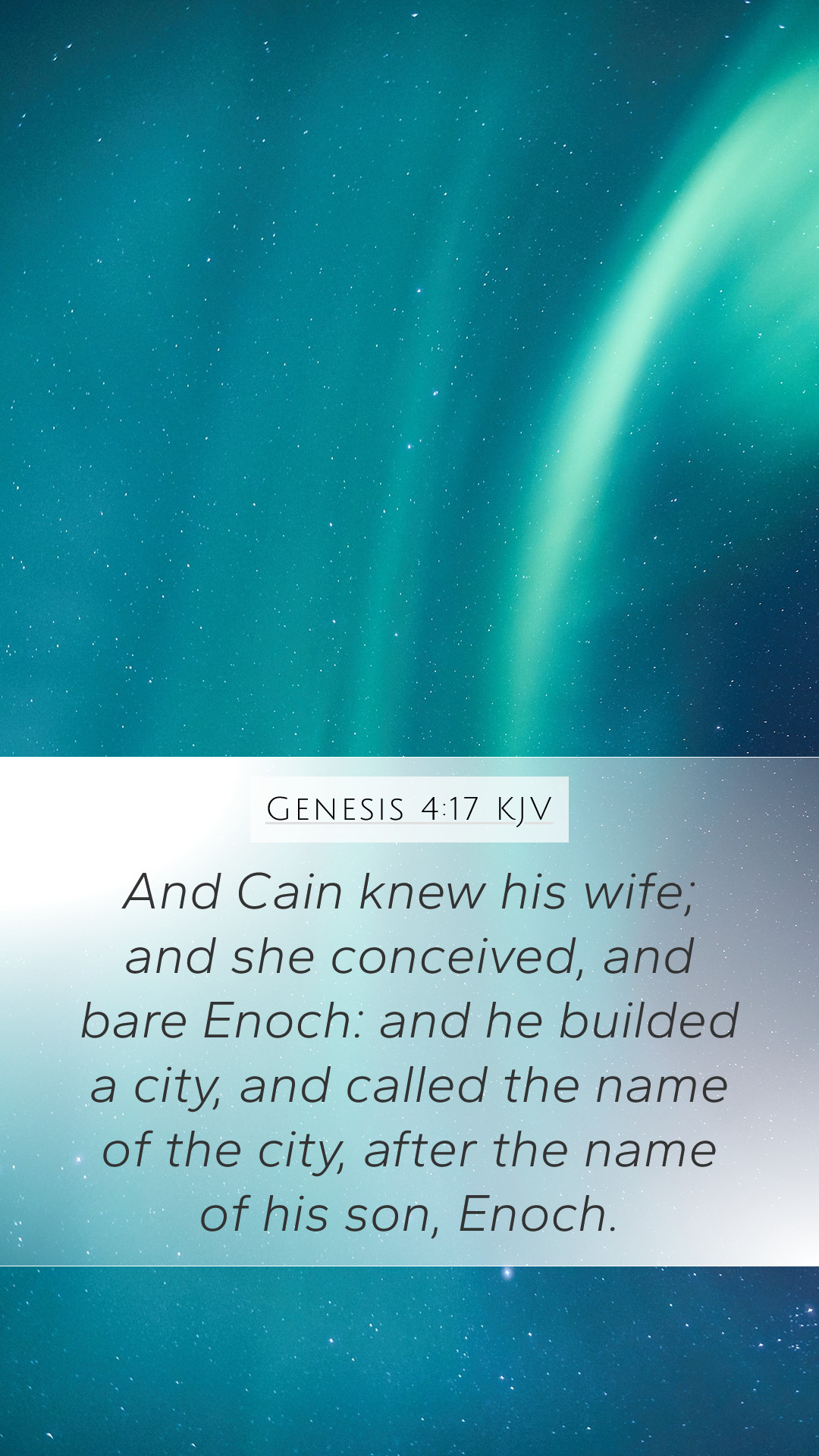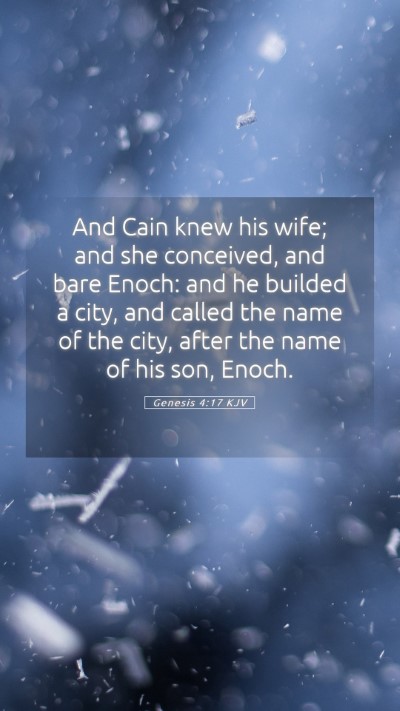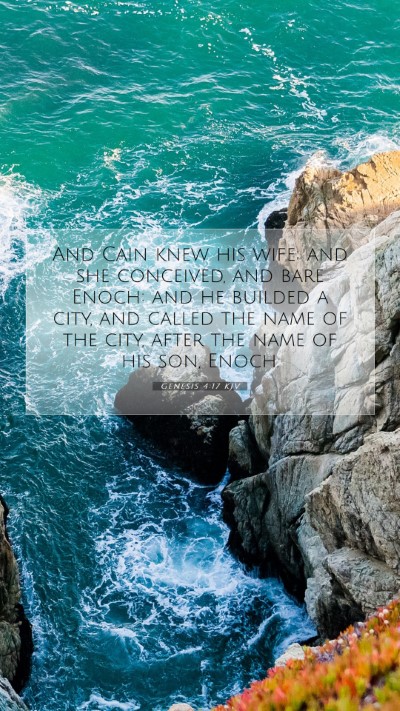Understanding Genesis 4:17
Bible Verse: Genesis 4:17 - "And Cain knew his wife, and she conceived and bare Enoch: and he built a city, and called the name of the city, after the name of his son, Enoch."
Summary of Genesis 4:17
This verse details the actions of Cain after he has been exiled for murdering his brother Abel. It showcases Cain's establishment of a city named after his son Enoch, marking a significant progression in human civilization. The implications of this act not only reflect Cain's personal legacy but also the beginnings of societal developments that can echo throughout human history.
Insights from Public Domain Commentaries
Matthew Henry's Commentary
Matthew Henry notes the significance of Cain’s actions as a reflection of his character and the state of humanity post-Fall. Cain’s act of knowing his wife and having a child illustrates the continuation of human life despite sin's consequences. Furthermore, building a city signifies the human ambition to create and establish a legacy, even in the face of divine punishment.
Albert Barnes' Commentary
Albert Barnes emphasizes the historical context of Cain's city. He interprets Cain's decision to build a city as a pursuit of security and desirability, indicative of man’s desire for shelter from the consequences of sin. The naming of the city Enoch suggests a personal connection and the endeavor of Cain to leave a mark on the world, providing a contrast to his earlier deed of murder.
Adam Clarke's Commentary
Adam Clarke provides an extensive exegesis on the term "knew" in reference to Cain and his wife, exploring its implications in terms of marital intimacy and procreation. He also discusses the concept of building a city which he correlates with civilization's advancement and the compilation of human culture and society. Clarke notes the pride in naming the city after his son, symbolizing Cain's attempt to redeem his legacy through future generations.
Thematic Analysis
The verse encapsulates themes of:
- Legacy: Cain’s desire to establish a lasting impact.
- Human Ambition: The construction of a city highlights humanity's drive to improve and secure a future despite inherent sinfulness.
- Family and Connection: The birth of Enoch represents hope and continuation in the lineage of humanity.
Biblical Exegesis
In a broader scriptural context, Genesis 4:17 serves as a foundational moment in human history, marking the development of societies. This moment reflects not just the personal story of Cain, but also the expanse of humanity's tendencies toward civilization.
Cross References
- Genesis 4:8 - The murder of Abel by Cain
- Genesis 4:12 - Cain's punishment and his life as a wanderer
- Genesis 10:8-12 - The descendants of Ham and the founding of cities
Application to Daily Life
For modern readers seeking biblical understanding, Genesis 4:17 teaches the importance of acknowledging our actions and their repercussions. It emphasizes the idea of legacy and the establishment of foundations both personally and communally. The story reflects on how, even after sin, there is the potential for growth, renewal, and the development of society.
Conclusion
Genesis 4:17 provides profound insights into the nature of humanity, sin, legacy, and community. When engaging with this scripture, we can draw lessons about our ambitions and responsibilities within our families and societies. The interpretation of this verse, through multiple commentaries, aids in enhancing our understanding of scripture, shedding light on its deeper meanings and implications.


